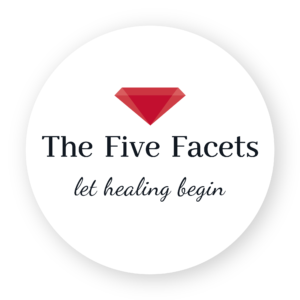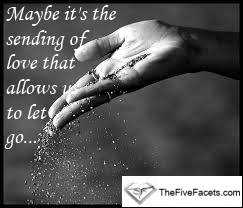“Meet people where they’re at.”
Yesterday, while researching quotes for the chapter introductions of the two Grief Diaries anthologies I am co-authoring, I came across that phrase for the umpteenth time in the past couple of months.
I have to be honest, though my brain comprehends what the words are saying, I haven’t been able to internalize what the expression means.
Meet people where they’re at.
I don’t know, maybe it is a psychology catch-phrase that they break down in the classroom or maybe it’s simply that my blond roots are showing. Regardless, it just hasn’t clicked for me…it just doesn’t make sense.
I’d asked my counselor to make it the topic of last week’s discussion and when it sort of took a back seat to some other things I asked if we could revisit it, again, this week.
Before today’s session began, she handed me a piece of paper with a quote on it that she said made her think of me.
It read: “I forgive people but that doesn’t mean I accept their behavior or trust them. I forgive them for me, so I can let go and move on with my life.”
“Ah, yes, forgiveness,” I said to her, “that’s another concept that I also have a hard time reconciling with my insides.”
You know that old adage, “Forgive but don’t forget”?
How do we do that? How do we remember that someone hurt us, wrap a layer of protection around ourselves, and then move forward without it affecting us? How can we not trust and let go at the same time?
It’s a conundrum, right? An oxymoron. A contradiction.
Several times she’s tried to use the Serenity Prayer as an example, but no matter how I try, Journeyer, I just wasnt’ feeling it within the context of what my heart and head and gut are trying to hash out.
Here are some of the notes I jotted during the session and a few thoughts I’ve had in the hours since.
“Some people may not be aware of their actions and insensitivity,” she said.
“I hate that expression, ‘take people where they are at’ ” the words spilled from my mouth. “At some point in life people have to realize that they are hurting others and that the things they do are causing pain and conflict for themselves and those around them.”
“Some people want the lesson and others don’t,” she said.
FREE WILL came to my mind.
If we are to believe that each of us comes to this earth under a life contract, an agreement between us and our highest power, then we are each here to learn something.
Growth comes from experience and being able to embody a particular concept.
The universe places onto our paths The 5 Ps–people, places, plants, pets, and particles–that provide us opportunity to experience events that will help us achieve whatever it is we came here to do.
Free will says, Um, no, I’m not feeling that right now. We, for any multitude of reasons choose to take a different path.
The way I’ve been trying to avoid getting caught up into other people’s nonsense and to not take it personally, is to realize that each of us is on our own journey here on earth. Some of us will choose to be mindful of what is happening in and outside of us. Some of us won’t.
When I’m feeling frustration toward a person, I try to remember to say this little prayer/meditation/wish, whatever you want to call it: “May you receive what you need to help you accomplish what it is you came here to do.”
That, Journeyer, comes from a place of love. When I remember to recite that statement, I feel peace. There is no malice, no accusation, and no judgment involved, rather it is a conscious decision to come from a place of compassion.
Maybe meeting people where they’re at means recognizing that even though we might be face-to-face with them we might well be on separate paths of our individual journeys. Their physical bodies may be standing in front of us but their spiritual selves are someplace entirely different…
Maybe forgiveness is more an act of sending out love than it is one of letting go of something else.
That same act of love applies to us, too, Journeyer.
No matter who our families are or how we were raised, we are subjected to actions and emotions such as jealousy, revenge, dislike, abandonment, hate…
Think about all of the sayings that immediately come to mind.
“Hell hath no fury like a woman scorned.”
“What’s good for the goose is good for the gander.”
“An eye for an eye.”
“Paybacks are a bitch.”
“Unrequited love.”
<insert your list>
We hear these things on the streets and radiating out from our televisions.
We read them in fiction and nonfiction stories alike.
And I dare to say that every one of us has thought and possibly spoken at least one of these stabs at least once in our life.
Those of us who do desire to operate from a place of love feel badly about thinking these things. We feel guilt and shame and then we feel confusion because we profess to be loving, kind, and considerate citizens.
How could I think such a thing? What is wrong with me?
Fear begets fear, Journeyer, and intensifies our conflict.
We are the other consideration in forgiveness, Friend. We must repeat to ourselves our own little mantra that comes from a place of love.
“May I receive what I need to help me accomplish what it is I came here to do.”
Now that I think about it a little more, maybe it’s both of those things, Journeyer, sending out love and letting go.
Maybe, just maybe, it is the sending of love that allows us to let go…
What does forgiveness and letting go look like to you, Journeyer? Help heal someone’s world of hurt by sharing your thoughts in a comment below.
Until we meet again, yours in hope, healing, and happiness,



4 Comments on “Healing and the Two Sides of Forgiveness”
I constantly find myself needing to recommit to being that person. The one who accepts. The one who understands that the behavior of others is beyond my control. The one who can let go of that.
Thank you, as always, for reminding me.
Me, too, Liv, always needing to recommit to being that person… And, as always, you are a breath of fresh air… Thanks for being here. {hugs}
I have recently been struggling with everything that you wrote about… Handling family and various people who judge and ridicule my husband and I for how we parent and some other of our personal beliefs. There’s open gossipy discussions, consensus reached, and then a report or lesson prepared for us about how we can live better… (Background: In the last fifteen years, we have walked through brain disease with our oldest until he passed, had a second child, adopted three from CPS, and received a diagnosis of autism from ones of those.)
Two days ago, we set-up personal boundaries for them. It’s like “Rules of Engagement.” Non-accusatorial, straight-forward, and fair. No response, but we feel suddenly extraordinarily free. I only share this as it might help someone else. We often impose rules onto ourselves about how to interact with others. Trouble is, they don’t necessarily have the same playbook. Sometimes it’s necessary to let others know what we need to feel secure.
So, SO true, Wende. Thank you for sharing. I am so happy for you and your family that you realized that other people don’t always play by the same rule book. It is important that you know you have the right to set those boundaries. Setting limits and guidelines with family is one of the hardest things we can do, and it can be especially discomforting when they resist your requests. For those of us who believe family to be an important part of our lives, we often jump through hoop after hoop after hoop trying to be flexible, trying to ask for understanding, looking for respect and some semblance of balance in how we navigate the familial differences…
No matter what, you and your husband are the parents to the children you have chosen to raise. May you and your spouse continue to stand united and may your family’s bonds be strengthened through your efforts.
Thanks for sharing with those in our neighborhood. Please consider joining our village by signing up for our newsletter and following us on any social media you participate in. You rock!
Happy holidays, Journeyer!
Yours in hope, healing, and happiness,
~AE